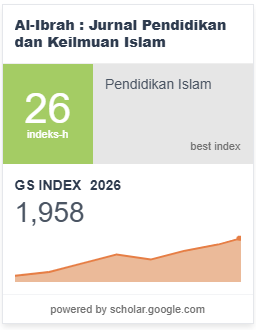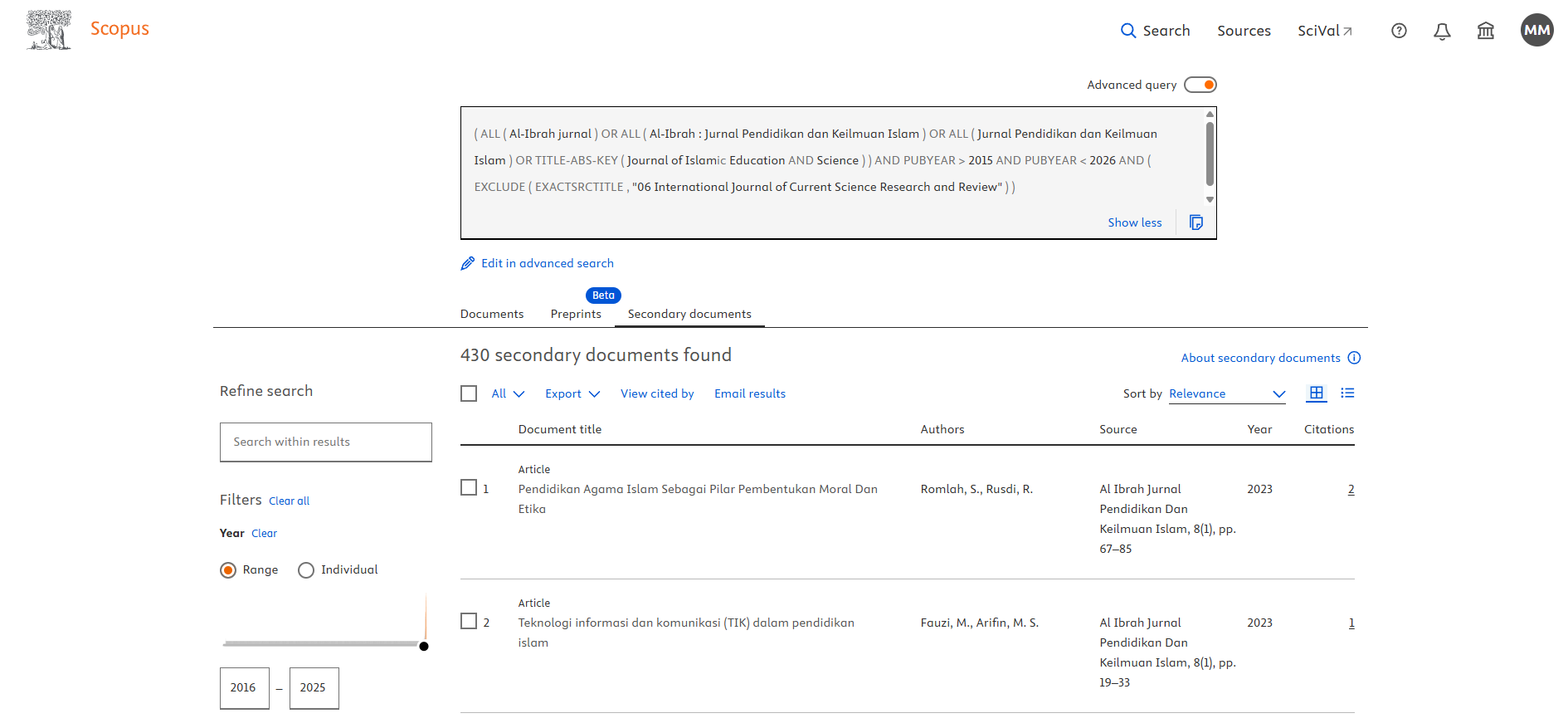THE ROLE OF WORK ETHIC IN ISLAMIC EDUCATION BASED ON AL-QUR'AN AND HADITH
DOI:
https://doi.org/10.61815/alibrah.v10i1.680Keywords:
Work Ethic, Al-Qur'an and Hadith, Relevance, Islamic EducationAbstract
This article examines the concept of work ethic from the perspectives of Al-Qur'an and Hadith and its relevance to Islamic education. The aim of this study is to explore how the principles of work ethic derived from Islamic teachings can be integrated into modern educational practices, focusing on the role of teachers and students in fostering a productive and ethical learning environment. Using a library-based research methodology, this study analyzes key verses from the Al-Qur'an and relevant Hadith to extract core values such as discipline, responsibility, and professionalism, which are central to the Islamic work ethic. The research findings suggest that these values can significantly contribute to the development of moral character in students, improve their overall academic performance, and help shape individuals who are both academically capable and ethically responsible. Additionally, the article discusses how the application of these values in the classroom and through the curriculum can foster an atmosphere conducive to both academic success and personal growth. The study concludes with recommendations for integrating Islamic work ethic into Islamic educational systems, advocating for teacher training, curriculum modifications, and institutional support to ensure the effective implementation of these values. The article highlights the importance of work ethic as a foundation for creating a holistic educational system that nurtures both intellectual and moral development in students.
Downloads
Downloads
Published
How to Cite
Issue
Section
License
Copyright (c) 2025 Mushohihul Hasan, Awashah Almalouh

This work is licensed under a Creative Commons Attribution-ShareAlike 4.0 International License.











